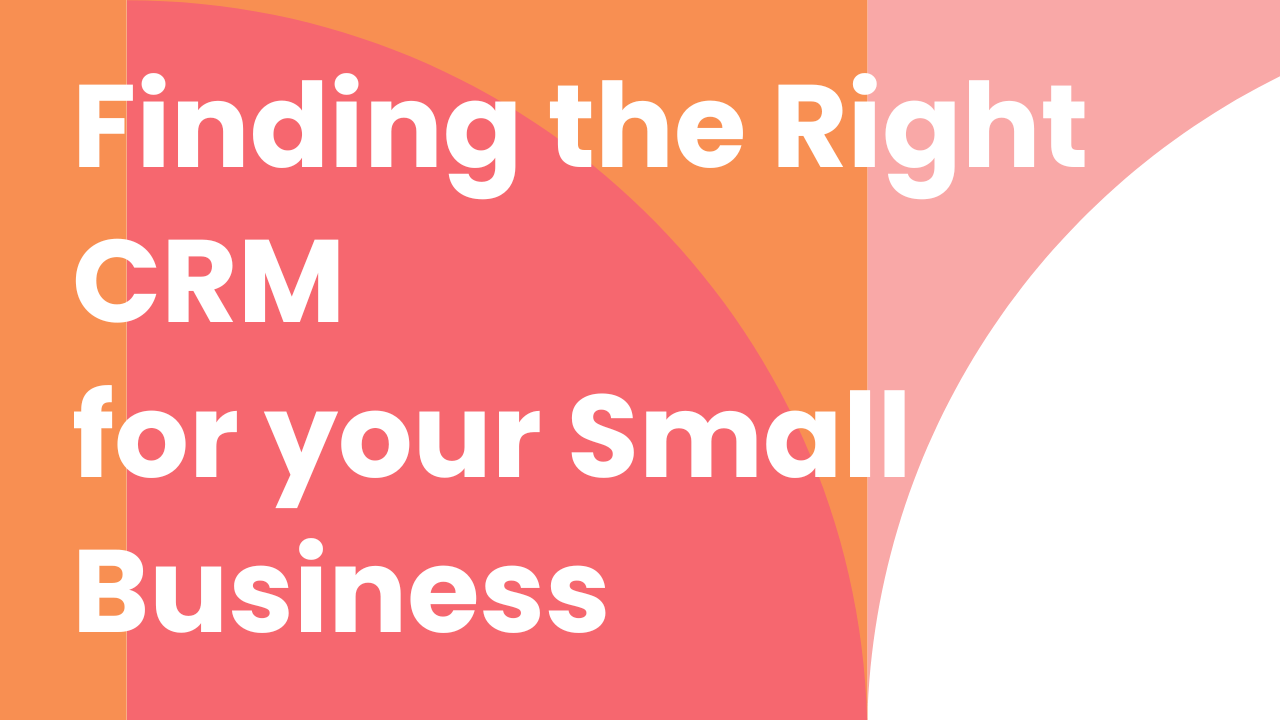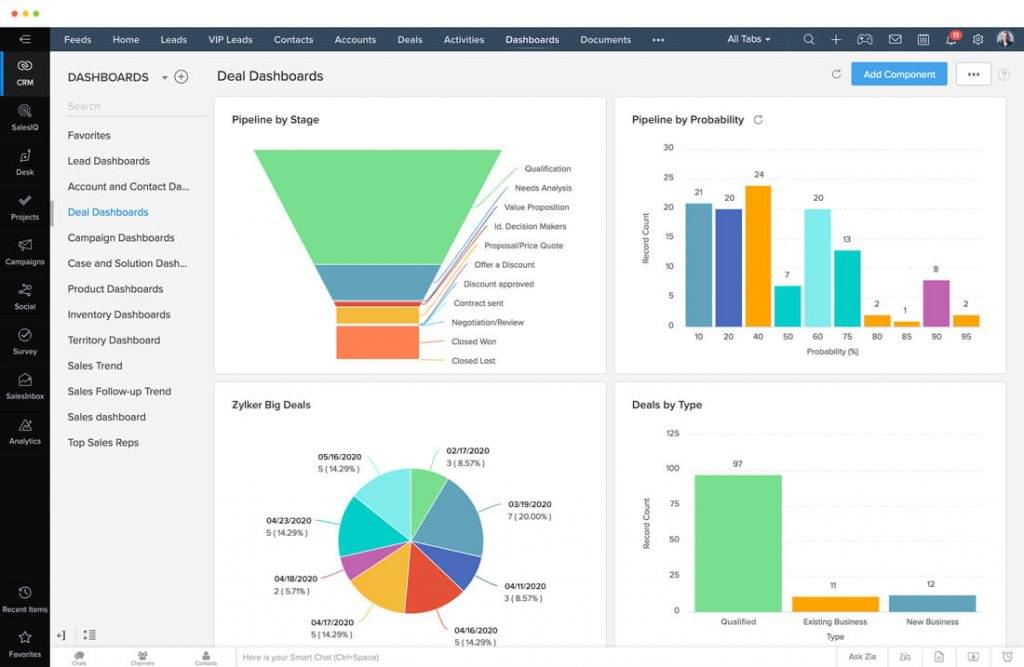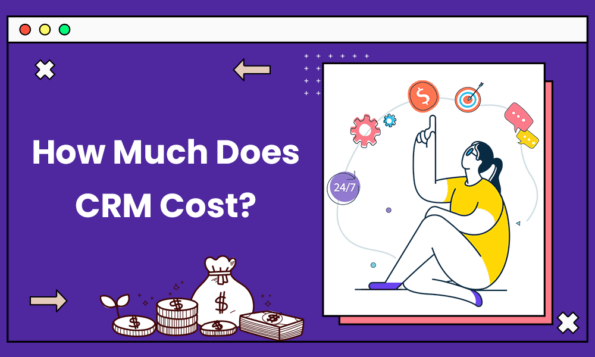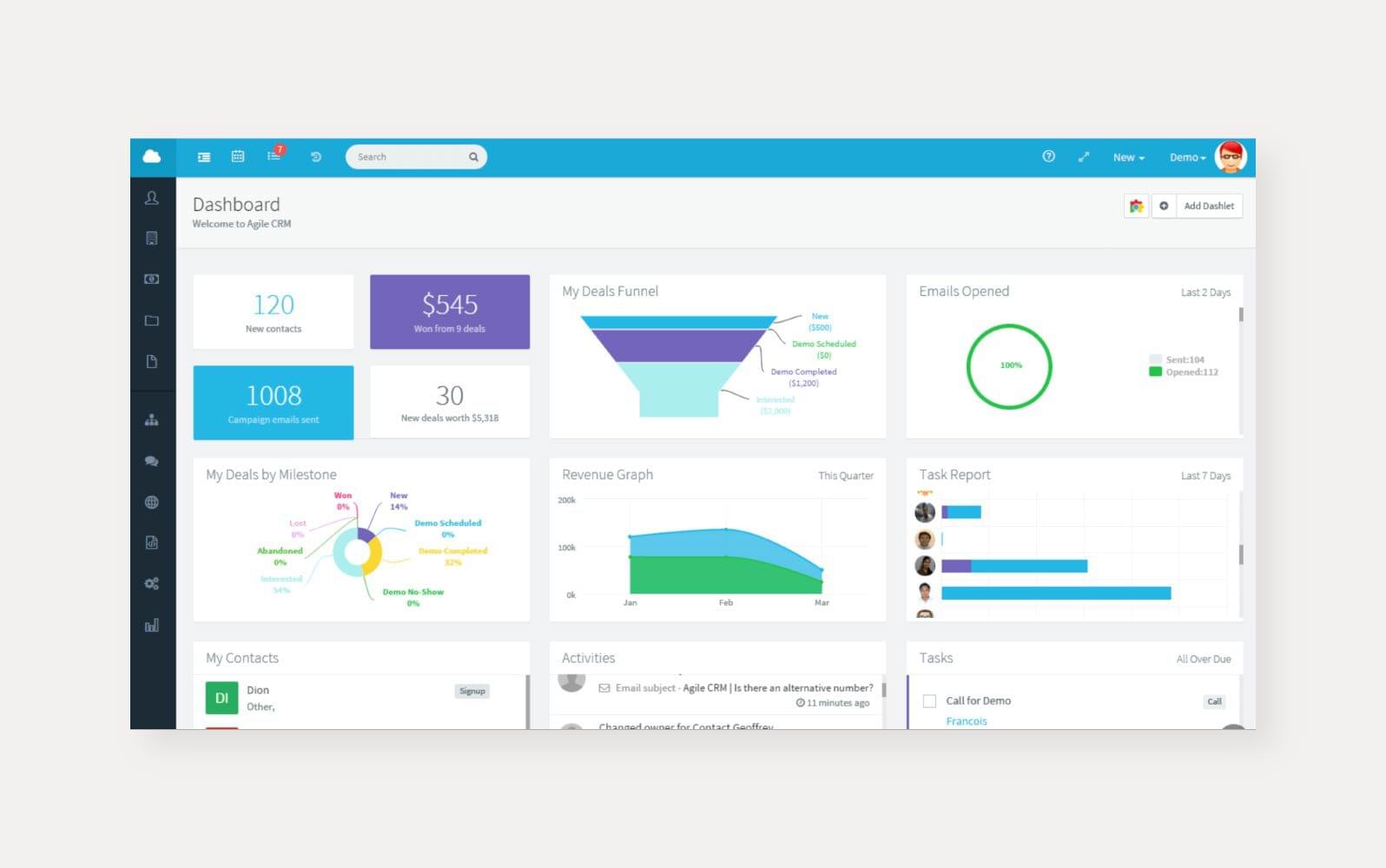Unlock Growth: The Best Free CRM Systems for Your Small Business
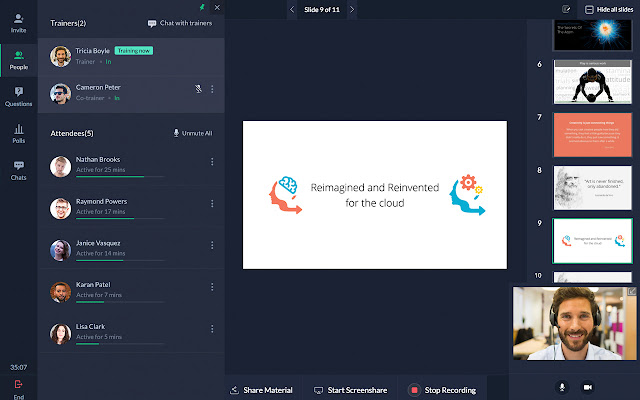
Unlock Growth: The Best Free CRM Systems for Your Small Business
Starting a small business is an adventure, a rollercoaster of excitement, challenges, and the constant pursuit of growth. You’re juggling a million things – from product development and marketing to customer service and sales. In the midst of all this, managing customer relationships can feel like herding cats. That’s where a Customer Relationship Management (CRM) system comes in. But let’s be honest, the thought of adding another expense, especially in the early days, can be daunting. The good news? You don’t have to break the bank. There are fantastic free CRM options out there, specifically designed to help small businesses like yours thrive. This article will explore the best free CRM systems available, helping you choose the perfect one to propel your business forward.
Why Your Small Business Needs a CRM
Before we dive into the specifics, let’s talk about why a CRM is so crucial. Think of it as the central nervous system of your customer interactions. It’s where you store, organize, and analyze all your customer data. This allows you to:
- Improve Customer Relationships: A CRM gives you a 360-degree view of each customer, allowing you to personalize interactions and build stronger relationships. You’ll know their past purchases, communication history, preferences, and more.
- Boost Sales: By tracking leads, managing the sales pipeline, and automating sales tasks, a CRM helps you close more deals and increase revenue.
- Enhance Efficiency: Automate repetitive tasks, such as sending emails or scheduling follow-ups, freeing up your time to focus on more strategic initiatives.
- Make Data-Driven Decisions: A CRM provides valuable insights into your customers and sales performance, helping you make informed decisions and optimize your strategies.
- Provide Better Customer Service: Quickly access customer information and track support tickets, enabling you to provide faster and more effective customer service.
In essence, a CRM is an investment in your business’s future. It’s about working smarter, not harder, and building a loyal customer base.
Top Free CRM Systems for Small Businesses
Now, let’s explore some of the best free CRM systems available. Each has its strengths and weaknesses, so consider your specific needs and priorities when making your decision.
1. HubSpot CRM
HubSpot CRM is arguably one of the most popular free CRM options, and for good reason. It’s incredibly user-friendly, packed with features, and integrates seamlessly with other HubSpot tools (like marketing and sales hubs, though those have paid tiers). It’s a great starting point for businesses of all sizes, and the free version is surprisingly robust.
Key Features of HubSpot CRM (Free)
- Contact Management: Store unlimited contacts and access detailed information about each one.
- Deal Tracking: Manage your sales pipeline and track deals through various stages.
- Task Management: Create and assign tasks to stay organized and on top of your to-do list.
- Email Integration: Connect your email account and track email opens, clicks, and replies.
- Reporting Dashboard: Get valuable insights into your sales performance with pre-built reports.
- Website Forms: Capture leads directly from your website with customizable forms.
Pros of HubSpot CRM (Free)
- User-Friendly Interface: HubSpot CRM is known for its intuitive and easy-to-navigate interface.
- Unlimited Users: You can add as many users as you need, which is a significant advantage for growing businesses.
- Excellent Integrations: Integrates seamlessly with other HubSpot tools and a wide range of third-party apps.
- Strong Support Resources: HubSpot offers extensive documentation, tutorials, and a helpful community.
Cons of HubSpot CRM (Free)
- Limited Automation: The free version has limited automation capabilities compared to paid versions.
- Branding: Some free features may include HubSpot branding.
- Advanced Reporting: More sophisticated reporting features are available in the paid plans.
Who is it best for? HubSpot CRM is ideal for small businesses looking for an all-in-one solution with a strong focus on marketing and sales. It’s a great choice if you’re looking to scale your operations and potentially upgrade to paid plans in the future.
2. Zoho CRM
Zoho CRM is another popular option, known for its comprehensive features and customization options. It offers a generous free plan, making it a strong contender for small businesses. It’s a powerful tool that can be tailored to fit various business needs.
Key Features of Zoho CRM (Free)
- Contact Management: Manage up to 3 users and store a limited number of records.
- Lead Management: Capture, qualify, and nurture leads.
- Sales Pipeline Management: Visualize your sales pipeline and track deals.
- Workflow Automation: Automate basic tasks, such as sending follow-up emails.
- Customization: Customize the CRM to match your business’s specific needs.
- Mobile Apps: Access your CRM data on the go with mobile apps for iOS and Android.
Pros of Zoho CRM (Free)
- Extensive Features: Zoho CRM offers a wide range of features, even in the free plan.
- Customization Options: You can customize the CRM to fit your specific business processes.
- Mobile Accessibility: The mobile apps allow you to stay connected and manage your CRM data from anywhere.
- Good Integrations: Integrates with other Zoho apps and various third-party services.
Cons of Zoho CRM (Free)
- User Limits: The free plan has a limit of 3 users.
- Record Limits: There are limits on the number of records you can store.
- Limited Support: Support options are more limited in the free plan.
Who is it best for? Zoho CRM is a good choice for small businesses that need a feature-rich CRM with strong customization options. It’s particularly well-suited for businesses that already use other Zoho apps.
3. Bitrix24
Bitrix24 stands out as a free CRM that also functions as a complete collaboration platform. Beyond CRM features, it includes project management, communication tools, and more. This makes it a great option if you’re looking for an all-in-one solution to manage your business operations.
Key Features of Bitrix24 (Free)
- Contact Management: Manage unlimited contacts.
- Deal Tracking: Track deals and manage your sales pipeline.
- Task Management: Create and assign tasks to team members.
- Project Management: Manage projects and collaborate with your team.
- Communication Tools: Includes chat, video calls, and email integration.
- Website Forms: Capture leads from your website.
Pros of Bitrix24 (Free)
- All-in-One Platform: Combines CRM with project management, communication, and other tools.
- Unlimited Users: The free plan allows for unlimited users.
- Generous Storage: Offers a good amount of storage space in the free plan.
- Comprehensive Features: Provides a wide range of features for managing your business.
Cons of Bitrix24 (Free)
- Complex Interface: The interface can be overwhelming due to the wide range of features.
- Limited Automation: Automation capabilities are more limited in the free plan.
- Storage Limits: Storage space is limited depending on the number of users.
Who is it best for? Bitrix24 is a great option for small businesses that want a comprehensive solution that combines CRM with project management and collaboration tools. It’s suitable for businesses looking for a centralized platform to manage all aspects of their operations.
4. Agile CRM
Agile CRM is a cloud-based CRM system that focuses on simplicity and ease of use. It’s a good choice for businesses that want a straightforward CRM solution without a steep learning curve. The free plan is generous, allowing for a good number of contacts and features.
Key Features of Agile CRM (Free)
- Contact Management: Manage up to 1000 contacts.
- Deal Tracking: Track deals and manage your sales pipeline.
- Email Integration: Connect your email account and track email activity.
- Marketing Automation: Automate basic marketing tasks.
- Web Analytics: Track website activity and gain insights into your visitors.
- Appointment Scheduling: Schedule appointments with your contacts.
Pros of Agile CRM (Free)
- User-Friendly Interface: Agile CRM is known for its intuitive and easy-to-use interface.
- Generous Free Plan: Offers a good number of contacts and features in the free plan.
- Marketing Automation: Includes basic marketing automation capabilities.
- Integrations: Integrates with various third-party apps.
Cons of Agile CRM (Free)
- Limited Customization: Customization options are more limited compared to other CRM systems.
- Feature Limitations: Some advanced features are only available in the paid plans.
- Support: Support options are more limited in the free plan.
Who is it best for? Agile CRM is a good choice for small businesses that want a user-friendly CRM with basic marketing automation capabilities. It’s suitable for businesses that prioritize ease of use and simplicity.
5. Freshsales (Free)
Freshsales, from the Freshworks family, offers a free plan with a focus on sales-specific features. It’s designed to help sales teams manage leads, track deals, and close more sales. If your primary need is to streamline your sales process, Freshsales is worth considering.
Key Features of Freshsales (Free)
- Contact Management: Manage an unlimited number of contacts.
- Deal Management: Track deals through the sales pipeline.
- Lead Scoring: Identify high-potential leads.
- Email Integration: Connect your email and track email activity.
- Reporting: Access basic sales reports.
Pros of Freshsales (Free)
- Sales-Focused: Designed specifically for sales teams.
- Unlimited Contacts: Manage an unlimited number of contacts.
- User-Friendly: Easy to navigate and use.
- Good Reporting: Provides basic sales reports.
Cons of Freshsales (Free)
- Limited Features: The free plan has fewer features compared to paid plans.
- User Limits: Limited to a small number of users in the free plan.
- Limited Customization: Customization options are restricted in the free version.
Who is it best for? Freshsales is ideal for small businesses and startups that are heavily sales-focused. It’s a great fit for those who need a simple, sales-centric CRM to manage leads and track deals.
Choosing the Right Free CRM for Your Business
Choosing the right free CRM system depends on your specific needs and priorities. Here’s a breakdown to help you make the best decision:
- If you need a comprehensive solution with marketing and sales tools: HubSpot CRM is an excellent choice.
- If you need a feature-rich CRM with strong customization options: Zoho CRM is a great option.
- If you need an all-in-one platform that combines CRM with project management and communication: Bitrix24 is worth considering.
- If you prioritize ease of use and simplicity: Agile CRM is a good choice.
- If you’re sales-focused and need a sales-specific CRM: Freshsales (Free) is a good option.
Consider the following factors when making your decision:
- Your business size: Some CRMs have user and record limits in their free plans.
- Your industry: Some CRMs are better suited for specific industries.
- Your budget: Free CRMs are a great starting point, but consider whether you might need to upgrade to a paid plan in the future.
- Your technical skills: Some CRMs are more complex than others.
- Your integration needs: Consider which other tools you need to integrate with your CRM.
Tips for Making the Most of Your Free CRM
Once you’ve chosen a free CRM, here are some tips to help you make the most of it:
- Import your existing data: Import your contacts, leads, and other data into your CRM to get started.
- Customize your CRM: Customize the CRM to match your business’s specific needs.
- Train your team: Train your team on how to use the CRM effectively.
- Use the CRM regularly: Make sure to use the CRM consistently to track your customer interactions and sales performance.
- Analyze your data: Use the CRM’s reporting features to analyze your data and make informed decisions.
- Explore integrations: Connect your CRM with other tools you use, such as email marketing platforms and social media channels.
- Stay organized: Regularly clean up and update your CRM data to keep it accurate and relevant.
The Future of Your Business
Investing in a CRM, even a free one, is a step towards building stronger customer relationships, boosting sales, and streamlining your operations. The right CRM can be a game-changer, helping you to stay organized, improve your communication, and make data-driven decisions. While free CRM systems may have limitations compared to their paid counterparts, they offer a valuable starting point for small businesses. As your business grows, you can always upgrade to a paid plan to unlock more features and capabilities.
Don’t be afraid to experiment and try out different free CRM systems to find the one that best fits your needs. The journey of building a successful business is filled with learning and adaptation. Embracing the right tools, like a free CRM, can pave the way for sustainable growth and lasting success. So, take the leap, explore the options, and start building those crucial customer relationships today! Your future success story could very well begin with a free CRM.

